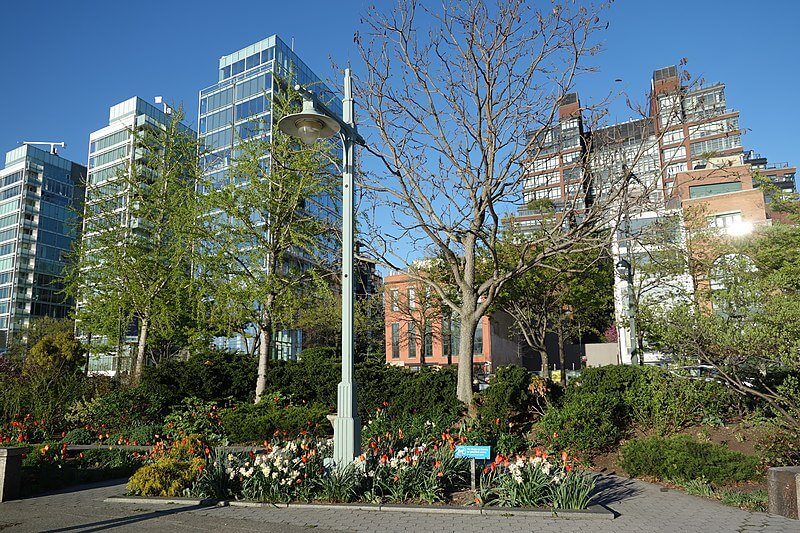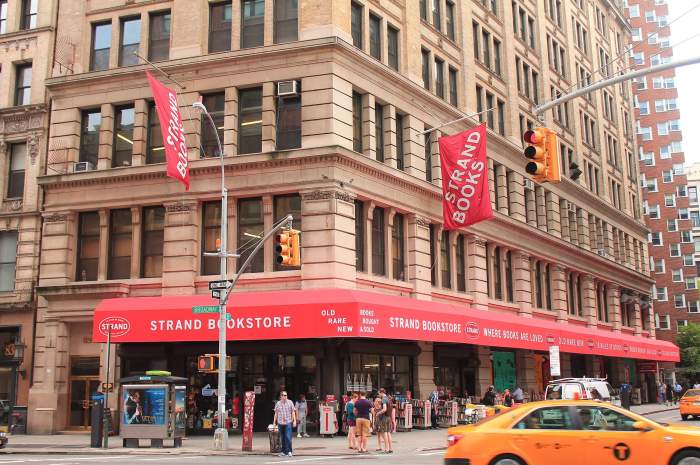In a narrow vote, New York’s Rent Guidelines Board voted 5-4 to raise rents for rent-stabilized apartments by 3.25% for one-year leases and 5% for two-year leases starting October 1.
The vote hits the heart of several LGBTQ neighborhoods — Chelsea, Hell’s Kitchen, and the West Village — particularly hard.
The median rent for destabilized apartments has shot up by 7% throughout the city, according to data from start-up rental platform openigloo. Some neighborhoods have seen 20% to 50% or more in rent hikes. Some of the hardest-hit neighborhoods again are where many LGBTQ people have traditionally called home in Manhattan — East Village, Lower East Side, and Upper West Side — and Williamsburg in Brooklyn. Upscale neighborhoods Gramercy and Murray Hill also saw a 50% or more rent hike.
Douglas Elliman’s May 2022 rental market report found that the median rent in Manhattan skyrocketed to $4,000 a month for the first time — a 25.2% jump from April 2021. In Manhattan, lease signings continued to rise, while vacancies remained below 2%. Brooklyn reached a new high in rent and reported bidding wars in one to four new leases for the second straight month. In Northwest Queens, the report found median rent rose to its second-highest on record. New leases fell annually for the second straight month.
A search for studio and one-bedroom apartments on openigloo in the West Village, Greenwich Village, Chelsea, and Hell’s Kitchen showed a couple of deals for $2,100 to $2,500 studios apartments. Some one- and two-bedroom apartments hovered around the median price range, while some went for well above $6,000 a month.
There are roughly one million rent-stabilized apartments in New York. Two million New Yorkers whose leases will be renewed in these buildings are going to see their rents increase on or after October 1. This will force renters to make difficult decisions. Will they pay up to stay or look for a new home in an already tight rental market?
Out gay Councilmember Erik Bottcher, who represents District 3 encompassing the West Side of Manhattan from Hudson Square to the Upper West Side, called the board’s vote “unconscionable.”
“Rent-regulated housing is one of the few options keeping queer people in historically queer neighborhoods,” Bottcher said as he pointed to the “economic uncertainty and hardship” facing New Yorkers, including LGBTQ New Yorkers, in the midst of a pandemic, inflation, and the talk of a possible recession. “We cannot allow people to be priced out of those homes.”
Rent-regulated apartments encompass both rent-stabilized and rent-controlled units. Only a small percentage of apartments in the city are still rent-controlled because that program was phased out in the 1970s. Roughly half of rental units in the city are rent-stabilized.
The meeting
New York’s landlords, tenants, and respective advocacy groups packed into Cooper Union in Manhattan on June 21. At times during the 45-minute meeting, the crowd drowned out the nine board members with their chants and jeers.
Landlords pushed for higher rent increases. Renters called for rent freezes or rollbacks. Neither left the meeting satisfied. The board held steadfast in the middle ground, something the members signaled at last month’s meeting they intended to do, reported the New York Times.
Five board members justified raising rents amid landlords’ complaints about increased operating costs and taxes. Four others were against it.
This is the first rent hike during New York Mayor Eric Adams’ administration. Board members are appointed by the mayor. The Times reported that Mayor Adams lobbied the board to lower increases but was also sympathetic to small property owners’ plight that rental income compensated for rising expenses.
Longtime tenant board member Sheila Garcia called out other board members’ reasons for raising rents. She echoed JustFix.nyc’s May 25 report findings stating small owners make up less than 1% of the rent-stabilized buildings in New York.
Examining two decades of the city’s property ownership, JustFix.nyc found most rent-stabilized apartments in New York, 89%, are corporate-owned. The report also discovered that large corporations continue to shift the narrative’s focus to small, mom-and-pop landlords to oppose legislation that protects tenants.
“It’s a bit of a fallacy, the small mom-and-pop landlord argument in New York,” said Allia Mohamed, co-founder and CEO of openigloo. “The majority of the city is owned by institutional and corporate landlords.”
Mohamed, 30, added that rent-stabilized apartments do not get the same maintenance care as market-rate apartments because landlords argue “they can’t justify spending that money because of the low rent.”
While there are some small landlords who “have been hurting for the past few years,” she said, “ultimately, they’re a small percentage of the market.”
Adán Soltren, a tenant representative and board appointee of Mayor Adams, voted against the rent increases. Soltren shamed fellow board members who voted to increase rents at the meeting.
“Your decision will result in millions of people suffering while corporations and investors continue to profit,” Soltren said, accusing his fellow board members of not following the board’s mandate. He called for a “serious revamping” of the board.
Public board member Christian Gonzalez-Rivera, who also voted against the rent increase, agreed with Soltren, calling the current system “unsustainable” and to blow it up.
According to the US Census, the median household income for New Yorkers is $67,046. To rent an apartment in New York, renters need to earn three times the amount of what the everyday New Yorker makes. New Yorkers are spending 36 percent of their income on rent, according to Gonzalez-Rivera, who cited the board’s research.
Gonzalez-Rivera was appointed by former New York mayor Bill de Blasio.
“You can’t just kick the can over to the Rent Guidelines Board,” he said. “That’s not fair to us and certainly not fair to the tenants who have to pay higher and higher rents or the landlords who are forced to choose between paying their tax bill or replacing the roof.”
Help for renters
Openigloo is providing support to renters to help weather the rent increase.
Mohamed expressed concern that some landlords might attempt to take advantage of renters who don’t know their rights, the rent-stabilization status of their apartment, or when the rent increase will go into effect.
Mohamed said the only way to verify the status of an apartment in new and older buildings is to obtain rental history from the state.
Launched in the fall of 2020, openigloo has gained more than 600,000 users and has garnered 30,000 building and landlord reviews across the city, according to the company.

Openigloo’s chief marketing officer, Lidor BarDavid, said, “There are good apartments out there. You just need to do your research.”
David will be using the platform this summer for his own apartment search in Chelsea, Hell’s Kitchen, and Greenwich Village, the 36-year-old gay Israeli professional said.
Mohamed added the platform is “emphasizing to renters” that it’s not just the apartment layout, price, and neighborhood that is important, but to look at how the building is managed and how the landlord operates their business.
She also noted that in addition to openigloo renters reporting rent hikes, 70% of its renters also reported “an increase of less than 4%” for some market-rate apartments.
“That tells us 70% of landlords out there are doing the right thing,” Mohamed said. “We want to connect renters with those landlords that really care about the people that they are housing and their properties.”






























